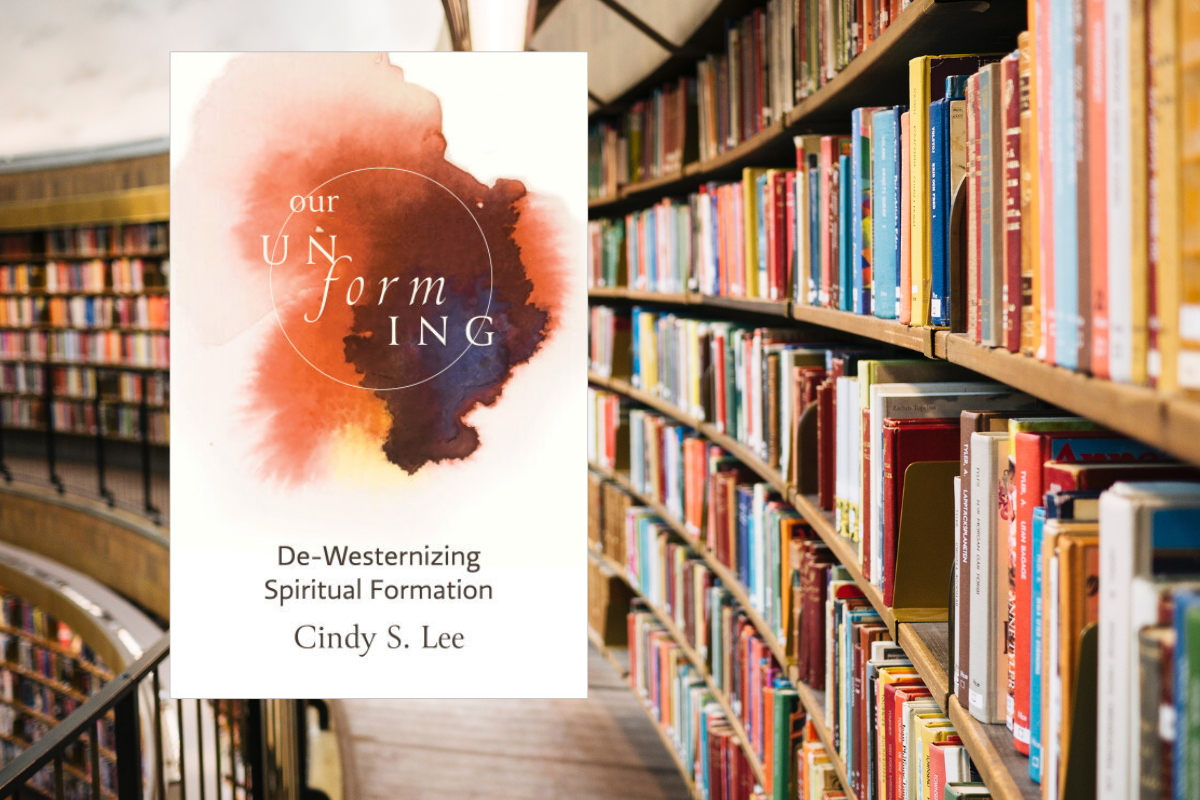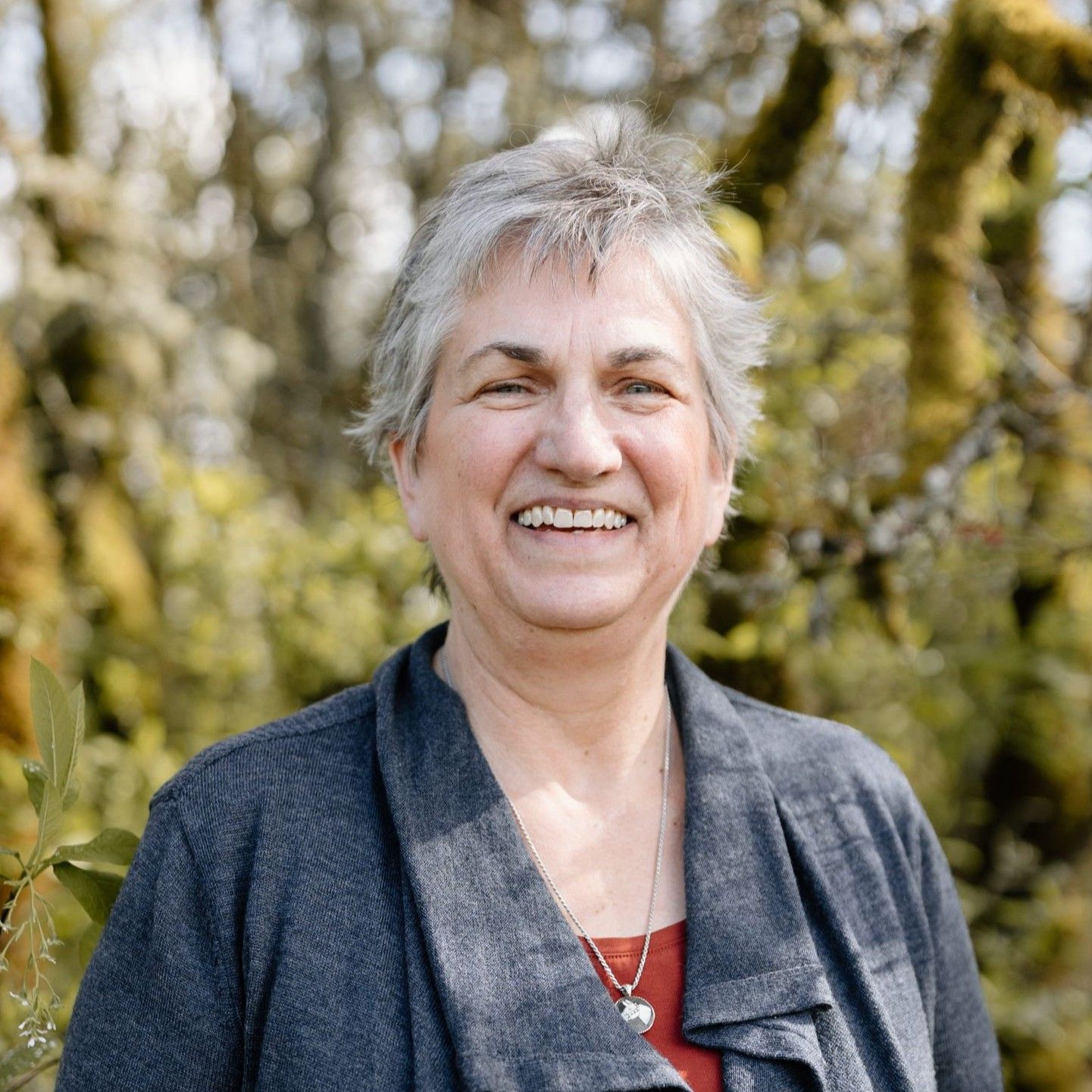Book Review: Our Unforming

Do you ever wonder about your view of God and spirituality? Have you ever taken the time to notice the contours of what you hold as a reality in a life lived by faith? Or even noticed how your understanding has been shaped?
These are questions that many of us neglect as we hold onto what we accept to be true and, often, discount what others believe about God, faith, and the world. Those of us who have studied spiritual formation and sought out an experiential relationship with God have discovered that we don’t experience God as we once thought. Our old ways of thinking and practicing our spiritual lives stop working as they used to. In this, God invites us deeper – to understand ourselves, God, and the world through a different lens.
Cindy Lee’s book Our Unforming: De-Westernizing Spiritual Formation offers this gift. She has given us a gift in her clear description of many of the cultural differences between Western and Eastern thought. Her writing is clear and inviting, and I resonated with much of what she stated from my experience.
Others have written about this topic from other viewpoints, but the gift of Lee’s offered writing is from a cultural perspective – very inviting indeed.
She states:
When our views of God and self are blurred, our bodies, minds, and emotions will all feel the strain. Thus the spiritual life requires a continuous cycle of unforming and re-forming. Unforming is the spiritual process of clearing out the clutter and the cobwebs that build up in us over time and prevent us from experiencing the sacred (p. 7).
Have you felt that clutter and those cobwebs? I have, more than once, I would say. I hope that is true for all of us as we lean into our relationship with God. Many label this process as deconstruction – uncluttering and unforming sounds gentler. I wonder if it comes from more of an open posture, humility even, of encountering more than we have understood previously.
Lee continues with:
We engage in continual unforming so that we can make space in ourselves for the Spirit to do new work in us. The work of re-forming, then, is the spirit-inspired movement of dreaming and imagining how our souls could be formed differently, especially if we are paying attention to other experiences of God (p. 8).
I believe this phrase, “other experiences of God,” invites a more significant and deeper awareness of God and our own spirituality. The gift of listening to another’s view, another’s experience, another’s life opens us to something different from our own. And then, as Lee invites, we can imagine and wonder about our own reality and the way history has shaped our paradigms, which can and will impact the future, not only ours but generations to come.
Lee explains three postures or orientations to the world.
Cyclical – Think about how we, in Western thought, see growth, learning, and our future as linear. This happens, and then this happens. We believe we need to get somewhere. I don’t know about you, but I haven’t experienced life in a linear progression, and to imagine that it would can create shame in not being “normal.”
Experience – In our Western Christian culture, we have tended to focus on what we know about God. As I type this, I notice a giggle – as if we can know all there is to know about God. Yet, we teach about believing the right things, and at least for many churches that I attended, an experience of God was not to be trusted.
Collective – This touches deeply into our individualized American culture. We have seen this play out in the political realm, in churches, in our education systems, and in our families. We are more focused on an individual perspective and do not realize the gift of a community focus. But what if we welcomed to a larger perspective? A collective sense of being in the world shapes an Eastern understanding.
Forgetting that Jesus lived in this type of Eastern culture and understanding shapes how we view God, ourselves, and the world around us. Recognizing that Jesus and the gospel accounts are based in the Eastern perspective Lee shares with us, can open us to a deeper understanding. Imagine listening to another’s cultural experience of the world to allow another’s thoughts to help shape our own. So, will we let the cultural orientations outside our own experience open us to a “more diverse spirituality?”
I would love to engage this topic with you. First, I highly recommend this book. And if you read it, I would love to hear your thoughts. And if you feel so inclined, I’m leading a book club starting on March 12 – I would love to have you join.
I asked Cindy Lee a few questions as well:
1. In the Conclusion section, you explained how important it is to remember the cost of conforming to a Western understanding – I wonder what you have noticed in your own journey of embracing a contemplative approach, one based in a non-linear, experiential, and collective understanding?
I have experienced freedom in letting go of expectations. There's no measure of what our spiritual lives needs to be or look like, but we can follow the cyclical movements as the divine guides us. There's also freedom in letting go of words. When spirituality is experiential, we don't necessarily need to define or explain or give words to our experiences. We can just experience them. Lastly, a collective spirituality has opened me up. Our western individualism has taught me a very self-focused perspective of calling. And we are constantly moving forward in pursuit of purpose. But now I no longer ask what is my "calling"? Instead I ask what is my role in the community?
2. As a Spiritual Director, how do you see this journey in those you accompany?
As spiritual directors, our presence invites our directees into the unknowns and uncertainties and be ok. We hold those uncertainties and questions with our directees. A collective spirituality also reframes what spiritual direction is as a communal practice. In that space we have a real attunement to each other. We can sense and share each other's emotions, even without words.
3. What do you hope your readers come away with after reading Our Unforming?
I envisioned the book as a way of opening up conversations and stories. I hope readers fill in the reading with their own stories and experiences.
4. What is one thing you would like us to know?
I practice an Asian-American centered and BIPOC centered writing and speaking. White readers are welcome in on our conversations, but for white readers reading the book is a practice in not being centered and noticing how that may feel in their bodies.


